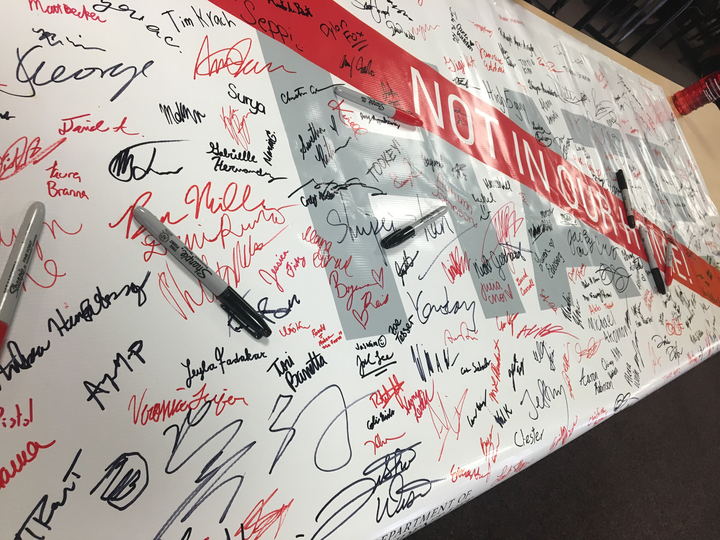Views expressed in opinion columns are the author’s own.
In 2018, we still lack reliable data on hate crimes. According to the nonprofit ProPublica, this is a national problem since federal agencies rely on local data that isn’t being collected. Maryland is not immune to this issue, and our hate incidents seem to be especially frequent on university campuses. That is why, on Jan. 15, state Del. Angela Angel proposed a bill that would “mandate public institutions of higher education in this state to develop more robust systems for reporting and documenting on-campus hate crimes and hate bias incidents.” This would be an important piece of legislation for the safety of marginalized college students in Maryland.
From 2011 to 2016, Prince George’s County and University of Maryland Police each reported either one or zero hate crimes a year to the FBI. While this incomplete federal data is the most accessible public information, it doesn’t tell the whole story. Last year, on this campus alone, The Diamondback reported on multiple hate bias incidents, including swastika graffiti, multiple nooses, white nationalist postersand a confederate flag etching. The murder of Bowie State student Richard Collins on this campus is being tried as a hate crime. According to university spokeswoman Katie Lawson, 27 hate bias incidents were reported on campus during the fall 2017 semester alone.
The need for action is clear, but the current requirements for university action are inadequate. Right now, students are often left wondering about what the resolutions to hate crime are. As alumna Yanet Amanuel put it, “you’ll hear about the noose, but not what happened after the noose. We don’t know if the guy’s still on campus, [if] he’s the kid sitting next to you in class, and that’s kind of the uneasiness that you have.” Our elected officials are also left in the dark since universities are not currently compelled to give them hard data on hate incidents.
But Angel’s bill would increase transparency for both students and lawmakers. She worked with ProtectUMD, a coalition of student groups that advocates for the marginalized, to draft a bill that would better serve them. It would require detailed reports of incidents and their resolutions so the General Assembly can gain an understanding of the problem. The bill would also mandate an “opt-in notification system that would send text or email alerts to students each time a suspected hate crime or bias incident” occurs. Universities would have to provide mandatory training on cultural diversity and hate crime prevention for first year students. These steps would provide the foundation for a safer and more just future.
It’s true that this university has taken some steps in the past year to address issues of hate, but the administration has not done enough. A task force was created and an annual report proposed, but we need Angel’s bill to push them further. It is crucial that hate incidents are better addressed at the government level, not just as an internal campus matter. One way we get there is with improved data from schools across the state, as soon as possible. This bill would also apply to other universities in Maryland whose students deserve the same protections and whose data can help bring about change.
The personal and institutional forces of racism that create a culture of hate crimes also work to dismiss the victims. We must start seeing incomplete data on hate crimes and the crimes themselves as part of a larger injustice. In addition to leaving marginalized students vulnerable, a lack of data allows the issue to be dismissed by those who don’t see, or choose to ignore, the true scope of racism today. Angel’s is the first step in a bigger fight.
Real transparency is, and always has been, necessary for justice. That is why, in response to the murder of Collins, students from Bowie State and this university painted a unity mural. The mural, meant to symbolize racial justice, now hangs in the Maryland State House as a vibrant reminder to our legislators. Student artist Aerika Anderson said the mural was based in part on the question, “Where do we go from here?”
Angel’s bill offers us a worthwhile answer.
Jack Lewis is a senior government and politics major. He can be reached at jlewis20@umd.edu



